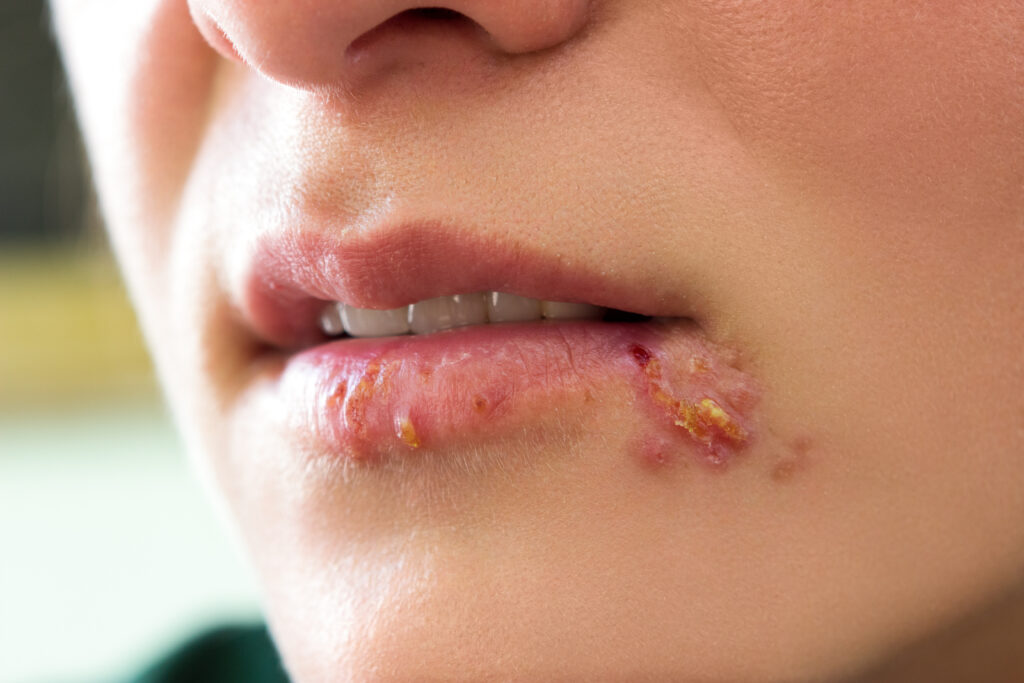Why Cold Sores Come Back: Key Triggers Explained

Cold sores are caused by the herpes simplex virus (HSV), which remains in the body from the first time a person becomes infected.
Many people carry the virus without constant symptoms, but the infection can reappear when certain factors reactivate it. Identifying these triggers and adopting preventive strategies is essential to reduce the frequency and severity of outbreaks.
HSV, the virus responsible for oral and genital herpes, is transmitted from person to person and “can remain dormant in the body for months or years,” Dr. Rafael Fernandez Bohorquez (Internal Medicine, Cleveland Clinic) explains.
Cold sore outbreaks occur when the virus reactivates, generally in situations that weaken the immune system or affect the integrity of the skin. Infections—especially the common cold—are among the most frequent triggers.
“Cold sores get their name because they often appear together with the common cold,” experts note, explaining that the immune system is usually busy fighting other viruses and temporarily stops keeping HSV under control.
Fever-related infections can also trigger outbreaks, which is why this type of herpes is often called “fever blisters.” In people with diseases that directly affect the immune system, such as HIV, outbreaks can occur more frequently.
Certain autoimmune diseases—such as lupus, Sjögren’s syndrome, or mast cell activation syndrome (MCAS)—increase the risk of cold sores because they confuse and overload the immune system, making opportunistic infections easier to develop.
Additionally, immunosuppression caused by medical treatments used for cancer or organ transplants deliberately weakens the body’s defenses, increasing vulnerability to HSV.
Skin care plays a crucial role in preventing outbreaks. Dermatologists from the American Academy of Dermatology (AAD) warned that skin injuries such as sunburns, rashes, severe acne, cuts, or scratches can cause inflammation and make cold sores more likely to appear, as the skin takes longer to heal when its natural barrier is compromised.
Extreme temperatures—both intense cold and excessive heat—can dry and crack the skin on the lips, raising the risk of an outbreak. Hormonal changes—such as those during puberty, pregnancy, menstruation, or menopause—can also contribute to viral reactivation by influencing immune strength.
Interventions involving the lips—such as filler injections, permanent makeup, or lip augmentation—along with local trauma or irritation from cosmetics, may also trigger outbreaks.
Experts recommends consulting a doctor before undergoing any lip-area procedure if there is a history of cold sores, as preventive antiviral medication may be necessary. They also advise postponing any procedure if an active outbreak is present to avoid complications.
Lack of rest and physical or emotional stress weaken the immune system and favor viral reactivation. “Insufficient sleep can weaken the immune system and increase susceptibility to cold sores.” Continuous release of hormones such as cortisol and adrenaline can lead to chronic inflammation, increasing the likelihood of recurrence.
Regarding diet, evidence of its influence is limited except for allergic reactions. If certain foods cause irritation, itching, or swelling of the lips, a specialist should be consulted. On the other hand, a balanced diet that strengthens the immune system may help prevent outbreaks.
To reduce the frequency and severity of episodes, the Cleveland Clinic recommends identifying personal triggers and consulting a healthcare professional if outbreaks become recurrent or symptoms appear unusual.
Using antiviral medication under medical supervision can be helpful for people who experience frequent outbreaks, improving control of the condition and reducing its impact on daily life. Recognizing triggers and seeking medical guidance can significantly improve the management of cold sores and the quality of life for those who live with the virus.

